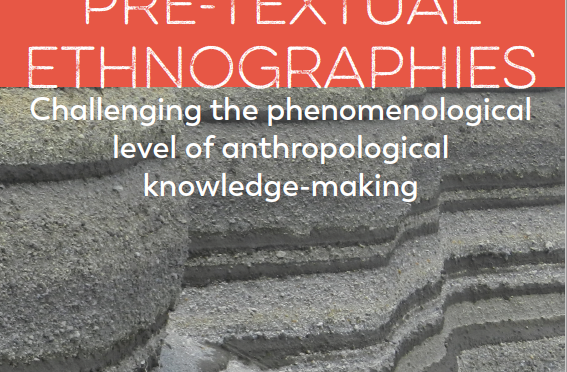Pre-textual Ethnographies. Challenging the phenomenological level of anthropological knowledge-making by Tomasz Rakowski & Helena Patzer
When & Where: 30 November 2018, 4 pm, CEFRES, Na Florenci 3, Prague 1 (Upper Hall)
Organizers: Institute of Ethnology of the Czech Academy of Sciences, CEFRES
Language: English
Editors
Tomasz Rakowski (Assistant Professor at the Institute of Ethnology and Cultural Anthropology, University of Warsaw)
Helena Patzer (Post-Doctoral Researcher at the Institute of Ethnology, Czech Academy of Sciences, Prague)
Discussants
Ewa Klekot (University of Warsaw/Poznan School of Form)
Daniel Sosna (University of West Bohemia, Pilsen)
Moderated by Luděk Brož (Institute of Ethnology, Czech Academy of Sciences, in Prague)
Abstract
Anthropologists often have fieldwork experiences that are not explicitly analysed in their writings, though they nevertheless contribute to and shape their ethnographic understandings, and can resonate throughout their work for many years . The task of this volume is precisely to uncover these layers of anthropological knowledge-making. Contributors take on the challenge of reconstructing the ways in which they originally entered the worlds of research subjects – their anthropological Others – by focusing on pretextual and deeply phenomenological processes of perceiving, noting, listening and sensing. Drawing on a wide range of research experiences – with the Dogon in Mali, immigrant football players in Spain, the Inuit of the Far North, Filipino transnational families, miners in Poland and students in Scotland – this book goes beyond an exploration of the development of increased ethnographic sensitivity towards words or actions. It also commences the foundational project of developing a new language for building anthropological works, one stemming from recurring acts of participation, and rooted primarily in the pre-textual worlds of the tacit, often non-visible, and intense experiences that exceed the limitations of conventional textual accounts.
“These edifying essays lay the groundwork for an
anthropology that not only overcomes old antinomies
of body-mind, text-context, representation-reality, but
encourages us to see how participatory method, social
attentiveness, and new forms of ethnographic writing can
enhance our understanding of the affective, intersubjective,
and conceptual complexities of life as lived,” Michael Jackson, Distinguished Professor of World Religions, Harvard University.

